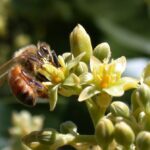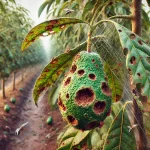Proper management of avocado cultivation is essential to ensure profitable and high-quality production. This process encompasses everything from selecting the right variety to implementing agricultural practices that ensure healthy tree growth and quality fruit production. Below, we detail the most important aspects of avocado crop management.
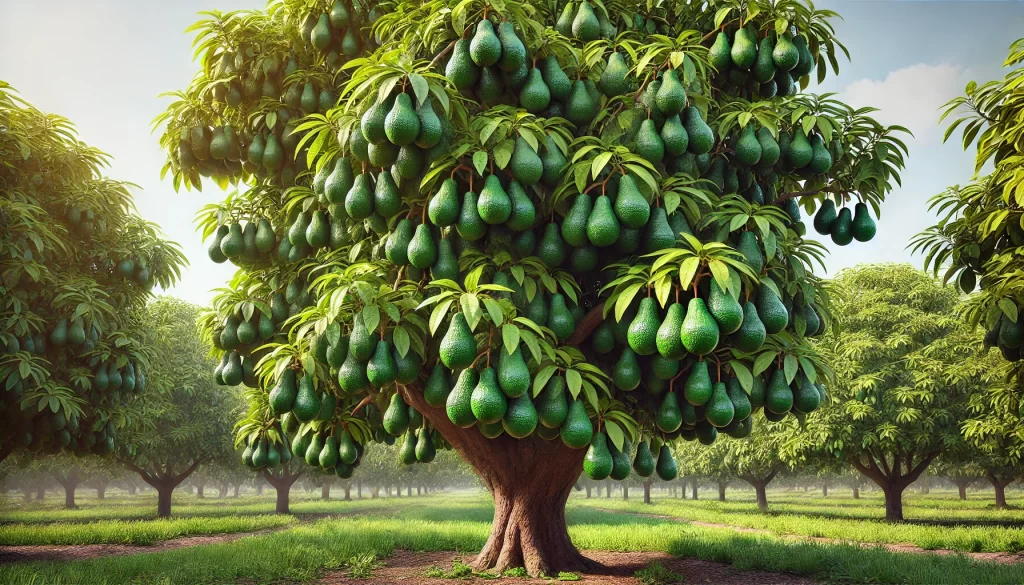
Variety Selection: Choosing the Ideal Avocado for Each Region
Selecting the avocado variety is one of the first and most critical steps in crop management. The most common varieties include ‘Hass,’ ‘Fuerte,’ and ‘Bacon,’ each with particular characteristics in terms of size, flavor, and disease resistance.
Climate and Soil Adaptability
It is crucial to select a variety that adapts well to the climatic and soil conditions of the region where it is planned to be cultivated. Factors such as cold resistance, the need for sunlight hours, and tolerance to different soil types play a fundamental role in the choice of variety.
Production Cycles
Some avocado varieties have shorter or longer production cycles than others, which can influence harvest planning and resource management throughout the year.
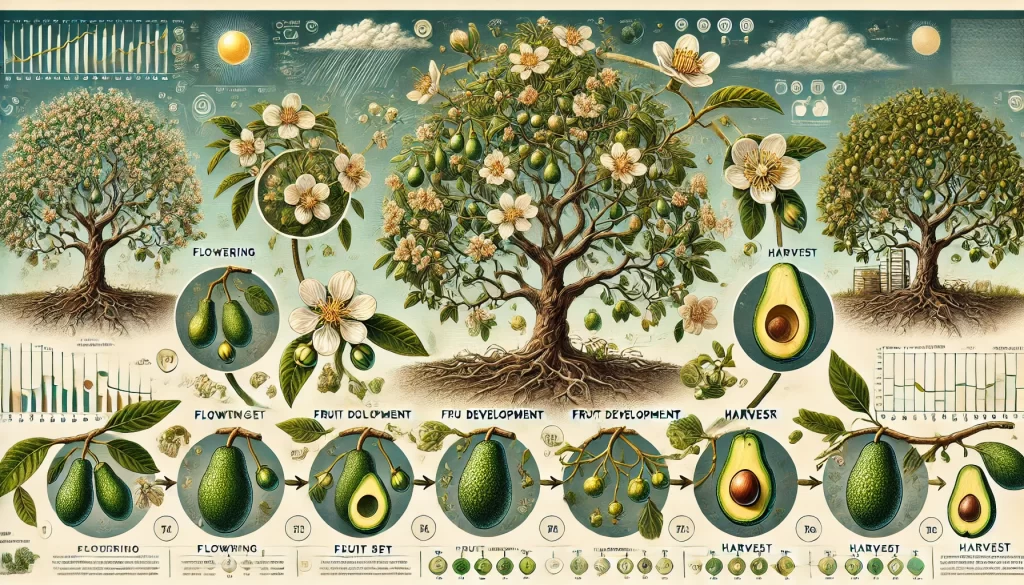
Soil Preparation: Creating an Optimal Environment for Growth
Proper soil preparation is vital for the development of roots and the overall health of the avocado tree.
Soil Analysis
Conducting a soil analysis before planting is essential to understand its composition and needs. This analysis will help determine whether it is necessary to correct the pH, improve soil structure, or add specific nutrients.
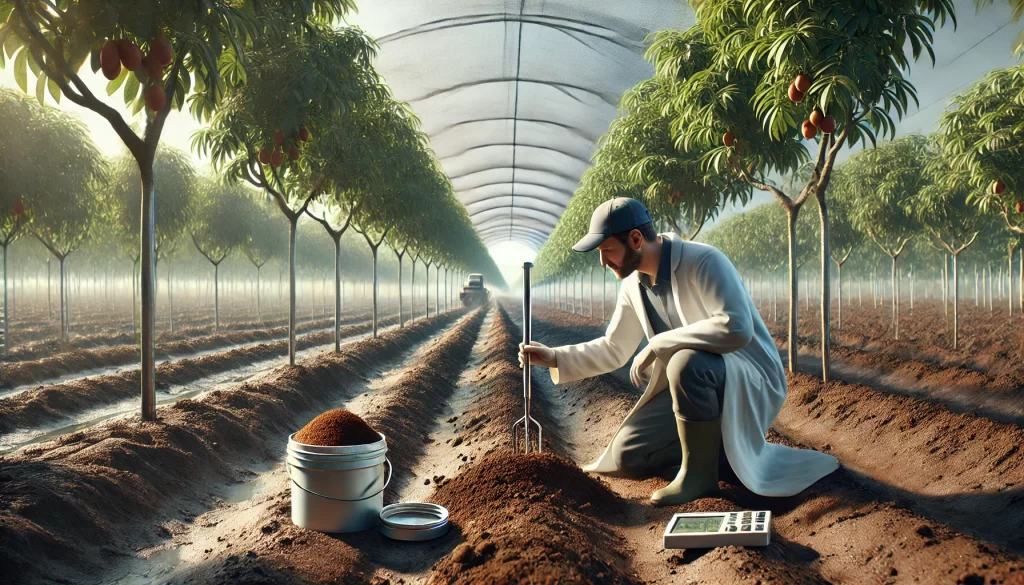
Drainage
Avocado is very sensitive to excess water, so good drainage is crucial. In heavy soils or those with poor infiltration, practices such as building raised beds or installing subsurface drainage systems should be implemented.
Planting and Spacing: Optimizing Space for Growth
Proper planting and spacing are critical to maximizing production and facilitating crop management.
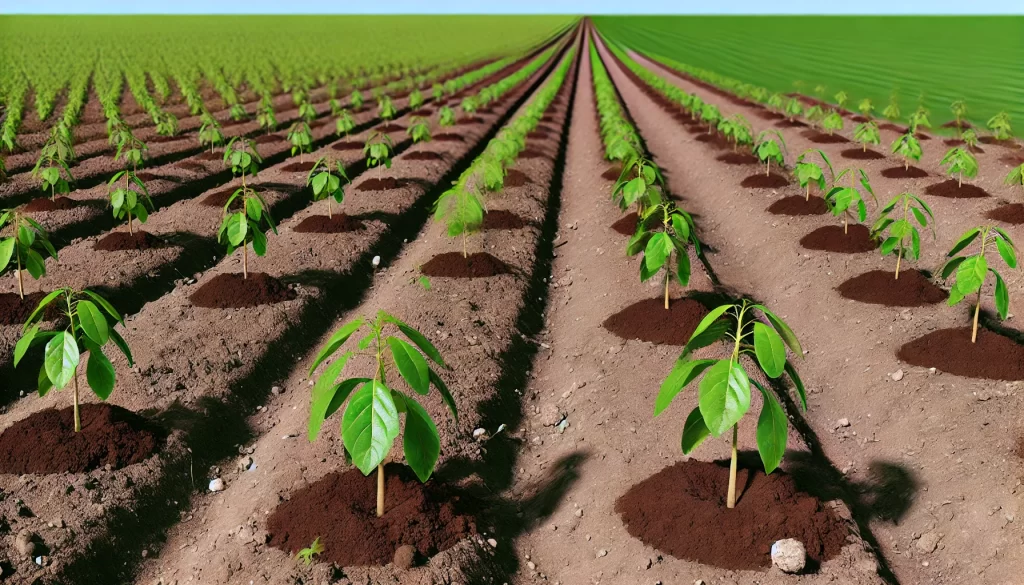
Planting Density
Spacing between trees depends on the variety and management system. Adequate planting density allows for good canopy development and prevents excessive competition for light, water, and nutrients.
Planting Methods
There are different planting methods, such as planting from seeds or grafted seedlings. The use of grafted seedlings is preferable as it ensures desired characteristics such as uniform growth and disease resistance.
Pruning and Training: Establishing the Tree Structure
Pruning is an essential practice in avocado crop management as it influences tree formation, fruit production, and the management of light and air within the canopy.

Training Pruning
During the first years, training pruning is crucial to establish a strong and well-balanced structure. This includes removing competing branches and promoting controlled vertical growth.
Maintenance Pruning
Once the tree has reached maturity, maintenance pruning is carried out to remove dead, diseased, or light-blocking branches, as well as to control the tree’s size and facilitate harvest.
Fertilization: Nutrition for Growth and Production
Proper fertilization is key to ensuring that avocado trees have the nutrients needed to grow and produce high-quality fruits.

Foliar Analysis
Foliar analysis allows evaluating the nutritional status of the tree and adjusting fertilizer applications according to specific needs. It is recommended to perform it at least once a year.
Fertilizer Application
Fertilizer application should be strategic, considering both macro and micronutrient needs. It is common to use fertilizers with nitrogen, phosphorus, and potassium, along with supplements of calcium, magnesium, and zinc.
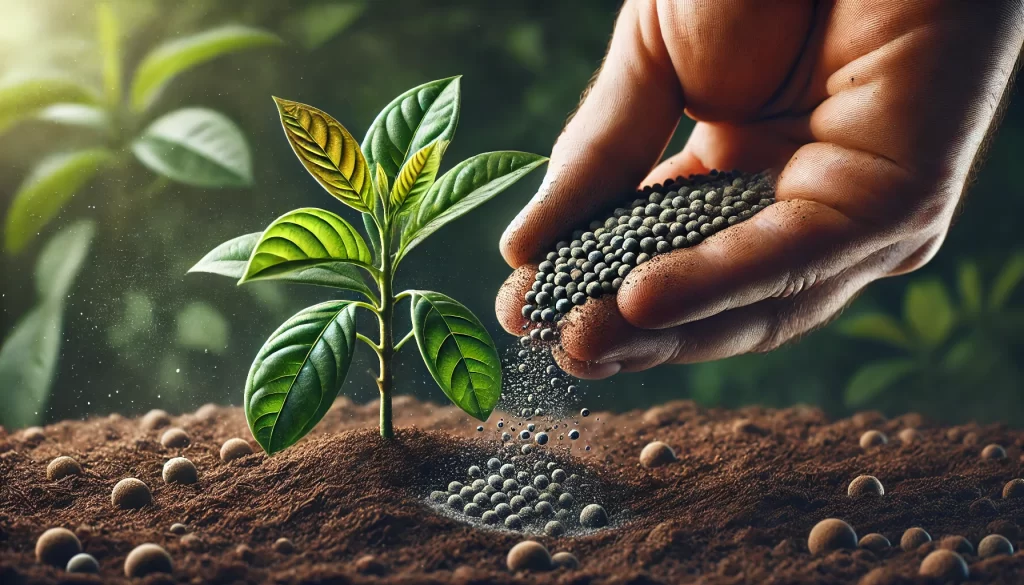
Pest and Disease Control: Protecting Crop Health
Pest and disease control is essential to prevent production losses and ensure the longevity of the orchard.
Identification and Monitoring
Regular monitoring of the crop allows for early identification of pests and diseases. Common pests include the seed borer and red spider mite, while Phytophthora root rot is one of the most serious diseases.
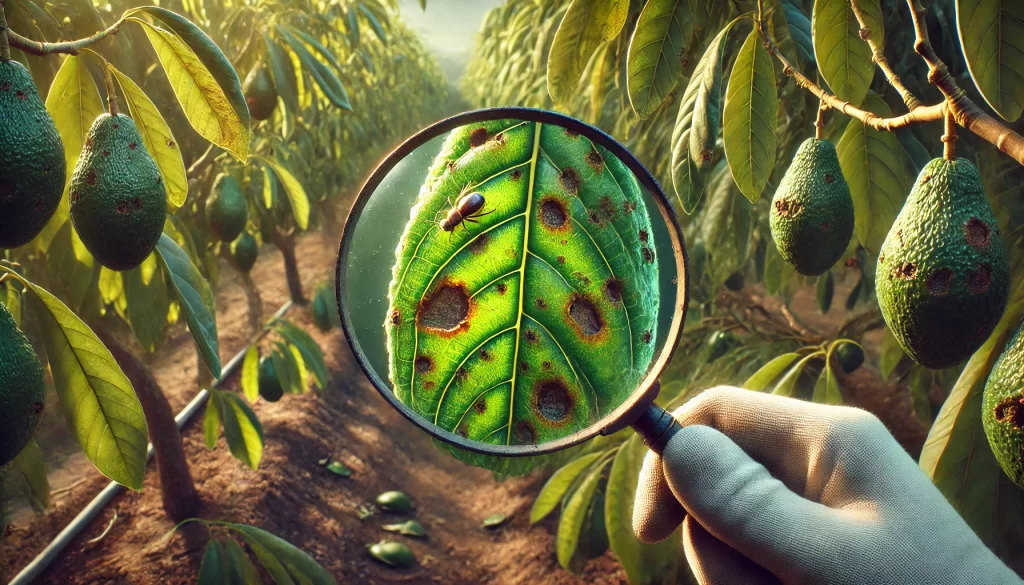
Integrated Pest Management (IPM)
IPM combines cultural, biological, and chemical practices to control pests and diseases efficiently and sustainably. This includes the use of biological control, crop rotation, and selective pesticide application when necessary.
Irrigation: Water Supply for Optimal Growth
Proper irrigation is crucial for avocado development, especially in regions with irregular rainfall.
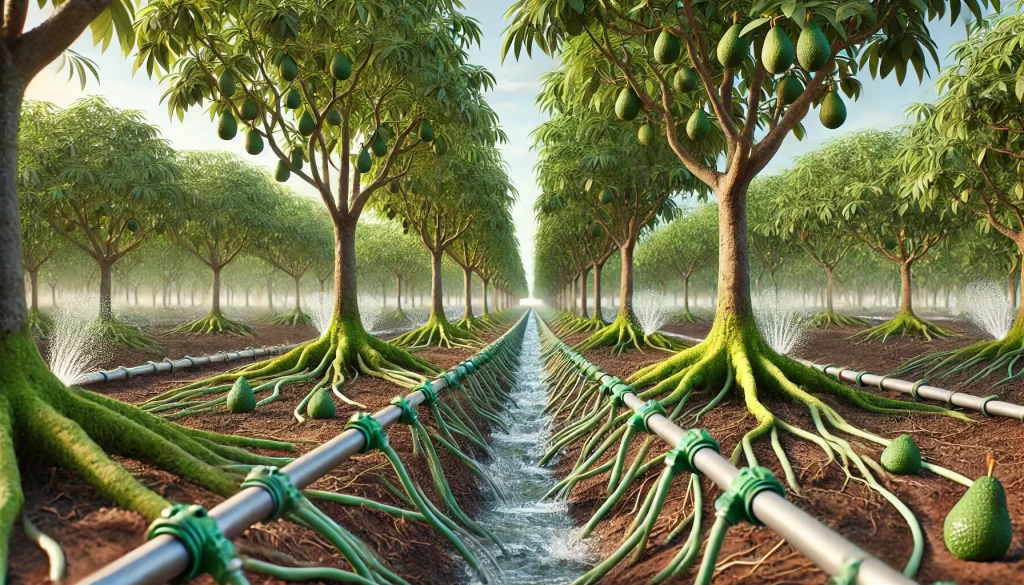
Irrigation Scheduling
Irrigation scheduling should be based on the specific needs of the crop, considering factors such as the growth stage, soil type, and climatic conditions. Drip irrigation is one of the most efficient systems for avocado cultivation.
Water Stress Management
It is important to avoid both excess and lack of water, as both can negatively affect production. Water stress management involves adjusting irrigation according to current crop conditions and continuously monitoring soil moisture.
 AgronoBlog – Agriculture Blog
AgronoBlog – Agriculture Blog 